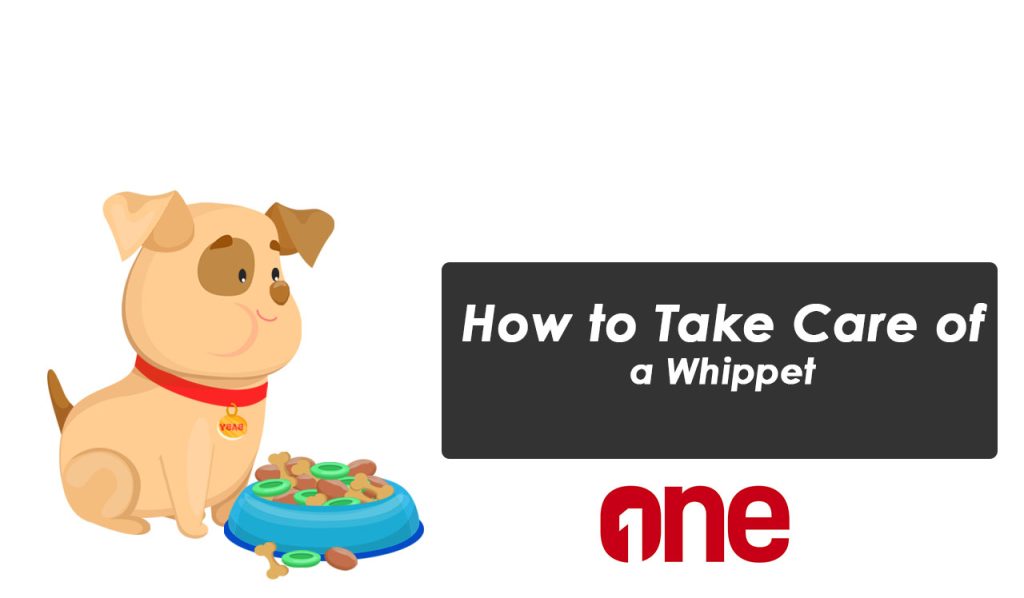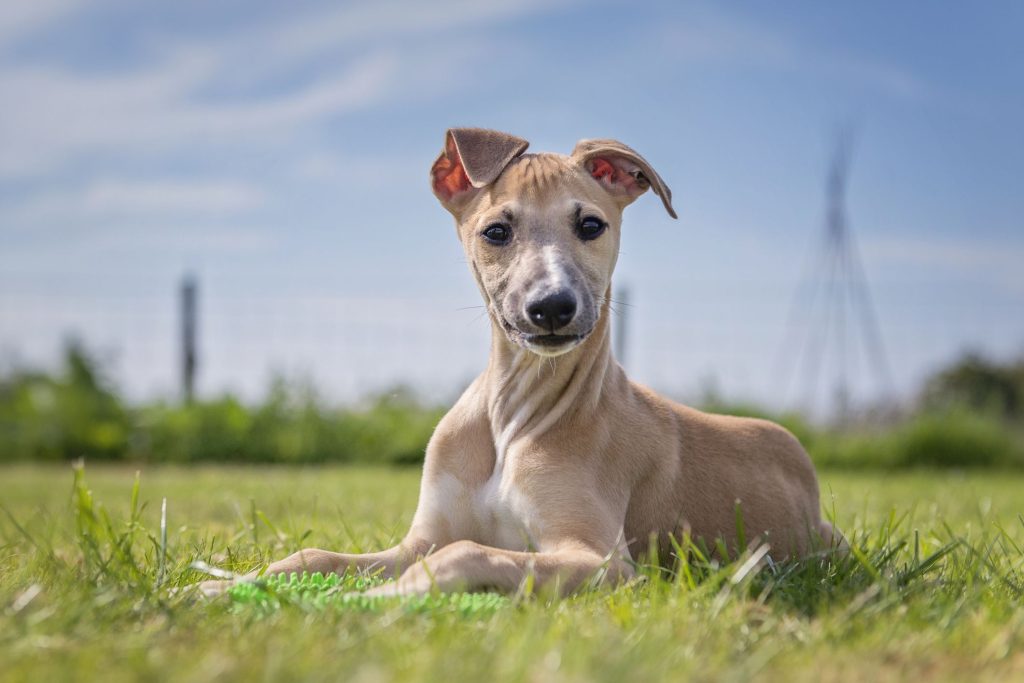
Ah, the Whippet – a dog breed so sleek, so graceful, and yet so utterly chaotic that you’ll often find yourself wondering if you accidentally adopted a tiny greyhound with a taste for mischief. With their slender frames and those big, soulful eyes, these pups are undeniably beautiful. But make no mistake, dear friends, owning a Whippet is no walk in the park (unless you consider chasing after a four-legged rocket an leisurely stroll).
These dogs were bred for speed, which means they possess an unparalleled level of energy, a boundless curiosity, and an unwavering belief that every open space is a personal racetrack. Buckle up, because we’re about to dive headfirst into the wild world of Whippet ownership!

The Whippet 101: A Brief History Lesson
Before we get into the nitty-gritty of caring for these speed demons, let’s take a quick trip through history. The Whippet hails from (you guessed it) England, where they were originally bred as hunting companions for the working class. These dogs were prized for their speed, agility, and their ability to keep up with hunters on foot.
Fast forward to the present day, and Whippets have traded in their hunting prowess for a life of couch-surfing, zoomie-running, and generally keeping their owners on their toes. But don’t let their refined appearance fool you – these pups still possess that fierce hunting instinct, which means they require plenty of exercise, mental stimulation, and a whole lot of patience to keep them from turning your living room into a racetrack.
Exercise and Mental Stimulation: Keeping the Whippet Busy
Imagine a rocket-powered greyhound with an endless supply of batteries, and you’ve pretty much summed up a Whippet’s exercise requirements. These dogs are born sprinters, and they need ample opportunities to burn off that excess energy, or else you’ll be dealing with a furry wrecking ball in your home.
Here are a few tried-and-true methods for keeping your Whippet happy, healthy, and (somewhat) out of trouble:
- Run, Whippet, Run! Whippets thrive on regular, high-intensity runs or sprints, where they can unleash their inner cheetah and leave you gasping in their wake.
- Fetch, But Make It Interesting: A simple game of fetch is never just a simple game of fetch with a Whippet. These dogs will turn it into an Olympic sport, complete with acrobatic leaps, sudden changes of direction, and a level of intensity that would put most professional athletes to shame.
- Lure Coursing: If you really want to tap into your Whippet’s hunting instincts, consider lure coursing – a sport where dogs chase a mechanically-operated lure around a fenced course. It’s the perfect outlet for their boundless energy and their insatiable prey drive.
- Puzzle Toys: When you’re not up for a full-blown cardio session, puzzle toys and interactive feeders can provide much-needed mental stimulation for your Whippet’s sharp mind.
Grooming and Shedding: Embracing the Sleekness
Let’s be real – owning a Whippet means committing to a lifetime of dealing with their short, sleek fur. While these dogs don’t shed excessively, their smooth coats can be a magnet for dirt, debris, and those pesky tumbleweeds of dog hair that seem to accumulate in every nook and cranny.
But fear not, my friends! With a bit of diligence and the right tools, you can keep your Whippet looking their best. Here’s what you’ll need in your grooming arsenal:
- A good quality slicker brush or deshedding tool
- A vacuum cleaner with attachments for reaching those hard-to-reach areas
- Lint rollers (because you’ll be finding Whippet hair in places you never thought possible)
- A sense of humor (to keep you sane when you’re picking up yet another hairball from the corner of the room)
Regular brushing is key to keeping your Whippet’s coat healthy and shiny, so make it a part of your weekly routine. And when it comes to bathing, stick to a mild, hypoallergenic shampoo to keep that sleek coat looking its best.
Training and Socialization: Taming the Speed Demon
Whippets are incredibly intelligent and eager to please, which can make them a dream to train – or a complete nightmare, depending on your approach. These dogs respond best to positive reinforcement training methods, as their sensitive souls can be easily crushed by harsh corrections or punishment.
That’s why proper training and socialization are crucial from an early age. Enroll your Whippet in puppy classes as soon as possible, where they can learn basic obedience commands and proper canine etiquette. And don’t forget about socialization! Whippets can be a bit reserved around strangers and other dogs if they’re not properly socialized, so expose them to new sights, sounds, and experiences in a controlled and positive way.
Trust me, the last thing you want is a 30-pound Whippet throwing a tantrum in the middle of the dog park (or, even worse, deciding that the squirrel in the tree is fair game for a chase).

Conclusion: Embracing the Chaos (and the Love)
Owning a Whippet is a rollercoaster ride filled with equal parts love, laughter, and the occasional desire to pull your hair out (which, let’s be honest, your Whippet has probably already done for you). These dogs are high-energy, mischievous, and utterly devoted to their owners – a combination that can be both exhilarating and exhausting.
But for those willing to put in the time, effort, and endless supply of lint rollers, the rewards of Whippet ownership are truly unmatched. These dogs are loyal companions, fearless adventure buddies, and a constant source of entertainment (whether intentional or not).
So, embrace the chaos, my friends! Stock up on puzzle toys, invest in a heavy-duty vacuum, and get ready for a lifetime of unconditional love and laughter with your very own rocket dog.
FAQs
- Are Whippets good with children? Whippets can make excellent family dogs, as they’re generally very affectionate and gentle. However, their high energy levels and potential for chase/prey drive can pose a risk around small children, so it’s important to supervise interactions and teach kids how to properly interact with dogs.
- Do Whippets bark a lot? While Whippets aren’t known as excessive barkers, they can be vocal dogs, especially when they’re bored or seeking attention. Proper exercise, training, and mental stimulation can help curb excessive barking.
- Are Whippets easy to train? Whippets are highly intelligent dogs and generally eager to please, which can make them relatively easy to train with positive reinforcement methods. However, their sensitive nature and potential for stubbornness can make them challenging at times, especially for first-time dog owners.
- Can Whippets be left alone for long periods? Due to their high energy levels and potential for separation anxiety, Whippets generally shouldn’t be left alone for extended periods. They do best with owners who can provide ample exercise, mental stimulation, and companionship throughout the day.
- Are Whippets good apartment dogs? While Whippets can adapt to apartment living with proper exercise and training, their high energy levels and potential for destructive behavior may make them better suited for a home with a yard or easy access to parks and hiking trails.






